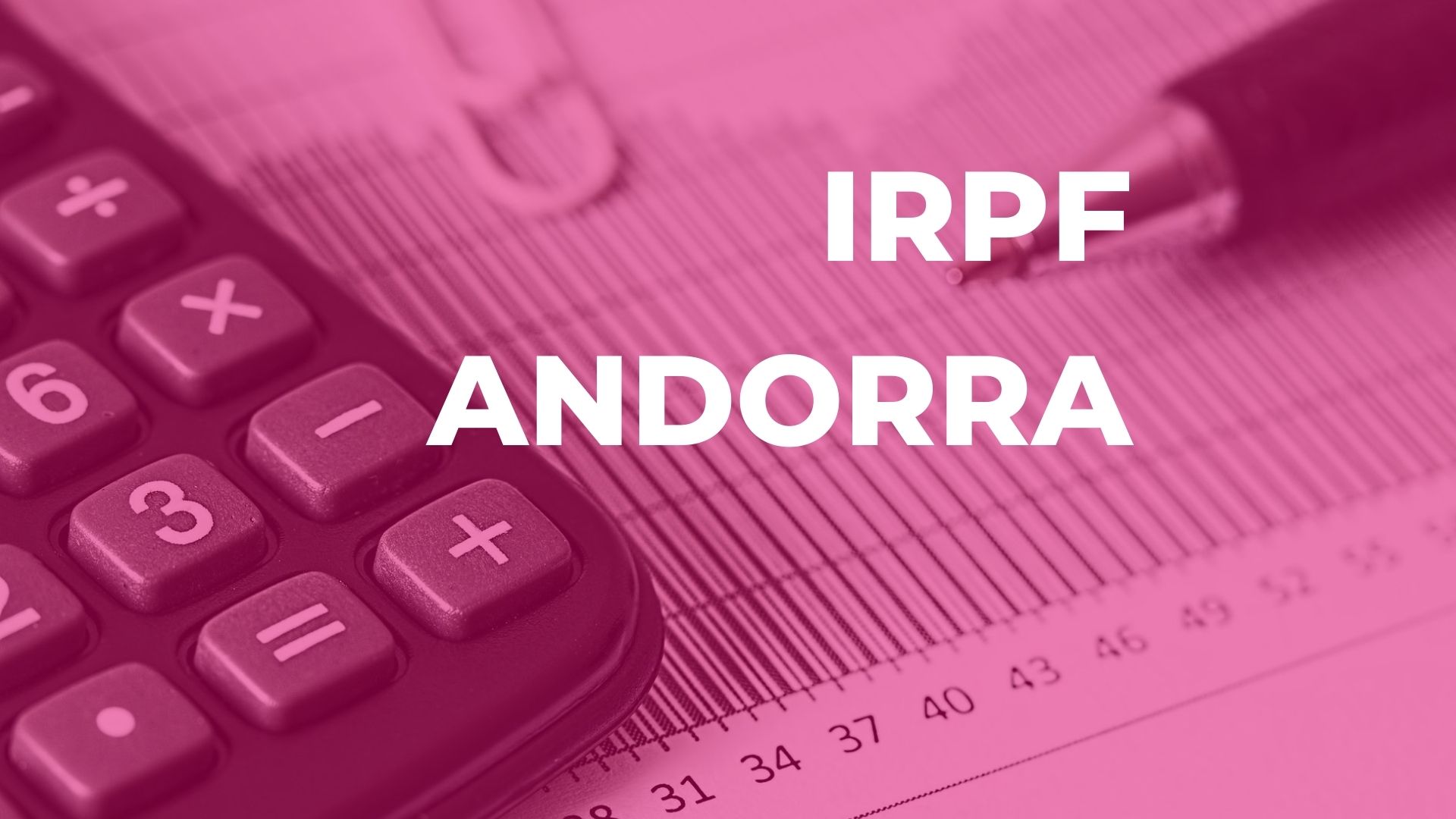If you’re considering changing your country of habitual residence and coming to live in Andorra, you’ve most likely already considered the range of advantages such as the language, the quality of life, the lower tax burden, the high standard of state schools, the quality of the healthcare system, the safety, and more besides. An aspect that is of particular interest to those planning to permanently or temporarily relocate to Andorra is the agreement that currently exists between Andorran Social Security (CASS – Caixa Andorrana de Seguretat Social) and their country of origin, in terms of social security coverage, contribution payments and pension benefits.
In this article, we will clearly and simply explain the main concerns that you will no doubt want to resolve before making the decision to move to Andorra. Don’t hesitate to contact us if you need more detailed information .
MAIN POINTS OF THIS ARTICLE
1 Countries that have concluded social security agreements with Andorra
2 What is the CASS?
3 The social security agreement between Andorra and Spain, France and Portugal
4 What benefits are included in the agreement between Andorra and Spain, France and Portugal?
5 The contribution scheme in Andorra and what you are entitled to
6 The Andorran points system for calculating retirement pensions
7 What health coverage am I entitled to if I decide to live in Andorra?
8 Other frequently asked questions:
8.1 What health coverage will my family have if they also decide to live in Andorra?
8.2 What health coverage will my family have if they stay in their country of origin?
8.3 What are my entitlements if I live and work in Andorra for a few years and then return to my country of origin?
8.4 Can I live in Andorra with my retirement pension?
8.5 In the event of my death, how much pension will my spouse receive?
8.6 Do a minimum number of years need to be worked to qualify for a pension?
1 Countries that have concluded social security agreements with Andorra
Andorra has social security agreements with neighbouring countries (Spain and France) and also Portugal (due to the large number of Portuguese immigrants who came to the principality in the second half of the 1970s and early 1980s).
Andorra is currently working on social security alignment with the European Union. If the negotiations are successful, it is likely that the current agreements will be extended to all EU countries in a few years.
2 What is the CASS?
The CASS, the acronym for Caixa Andorra de Seguretat Social, is the parapublic body in charge of the country’s social security system, based on the principles of unity, solidarity and equality. The system is based on co-payment, in other words, the insured person contributes a certain amount for each medical treatment or pharmaceutical service.
Almost all Andorran residents are covered by the Andorran public health system.
In the health sector, the CASS is responsible for the reimbursement of medical and pharmaceutical services, ranging from 33% (health expenses for services not affiliated with the CASS) to 100%.
3 The social security agreement between Andorra and Spain, France and Portugal
Andorra has concluded bilateral agreements with Spain, France and Portugal. These agreements apply to workers who have made contributions in one or both countries, as well as their family members and descendants.
In general terms, the agreement recognises the sum of the work and contribution periods in these countries, provided they do not overlap, for pension entitlement. When the time comes to receive a payment, the beneficiary can do so in any of the countries with which treaties exist, and it will be paid directly by each of the issuing countries.
4 What benefits are included in the agreement with Spain?
The social security agreement between Andorra and Spain, France and Portugal applies to benefits relating to:
- Healthcare with regard to maternity, common illness and workplace accidents
- Financial assistance for temporary incapacity due to common illness or workplace accidents
- Financial assistance for maternity
- Incapacity, retirement, death, widow or widower, and orphan pensions
5 The contribution scheme in Andorra and what you are entitled to
All employed or self-employed people who conduct professional activity in Andorra must be registered with Andorran Social Security (CASS). People who decide to live in Andorra without working and who are not entitled to retirement benefits or a pension for total or partial disability must have private insurance for health cover in the country.
22% of an employee’s gross monthly salary is paid to the CASS (6.5% by the employee and 15.5% by the employer). For the self-employed, a basic contribution rate of 22% of the country’s average salary is applied. On this basis, depending on the actual turnover of the self-employed individual and their net income from the previous tax year, reduced contributions can be requested or larger contributions can be made on a higher basis than the average salary (up to 125% or 137.5%).
These contributions are divided into 10% for the general scheme (covering sickness, maternity, incapacity, etc.) and 12% for the retirement scheme (old-age and widow or widower pensions).
With regard to health or pharmaceutical benefits, the CASS covers 75% of the cost, with the remaining 25% being paid by the insured individual (co-payment system), which can be covered by a supplementary insurance policy with a private insurer. In certain cases, (due to a workplace accident, the type of illness or insufficient resources), public health cover may even be 100%. At the same time, CASS coverage may be lower if the insured person (or a member of their family) does not comply with the via preferent (a plan that can be used within the public healthcare system), which was introduced in the country as of 1 July 2020.
The via preferent is based on each insured person having a referring physician (known as a general practitioner) who decides to refer the patient to a specialist if they deem it necessary. A minimum of 75% of the expenses for all services within the via preferent are covered, whereas if the insured person decides to visit a specialist directly, only 33% of the expenses for appointments or services recognised by the CASS will be reimbursed. Gynaecology and obstetrics, ophthalmology, and stomatology and dentistry appointments or check-ups do not require a referral from a general practitioner.
6 The Andorran points system for calculating retirement pensions
The Andorran social security system for calculating retirement pensions is based on the purchasing of points by the insured person. Recall that the insured person pays 22% of their gross salary to the CASS. Of this percentage, 10% goes to the general scheme for health benefits and the remaining 12% to the retirement scheme.
With the amount corresponding to 12% of their gross salary, each worker buys “points” which are then used to calculate their contribution. The points work like shares: they have a purchase price and a sale price (which is the price applied when the pension is calculated). The sale price of a point will depend on when an individual retires, as it is updated every year.
7 What health coverage am I entitled to if I decide to live in Andorra?
- If you are considering relocating to Andorra, it is important to know the type of residence that you are going to apply for (you can consult more detailed information on the types of residence in Andorra here).
- Active Residence (for workers or investors) as either an employee or self-employed person.
- Passive residence (or tax residence): this type of residence does not allow professional activity in the country and includes non-profit residences, international professional residences, and residences of scientific, sporting or cultural interest.
You can consult other articles from our blog on how to apply for residence in Andorra and the main features of the principality’s tax residences:
If you are thinking of applying for passive residence, you should be aware that, since you are not working in the country, you will not be contributing to the Andorran social security system. Therefore, you should take out a private insurance policy that provides health coverage within the country.
If you have Andorran residence and a work permit, you may find that you fall into one of these categories:
- Company employee
- Self-employed
- Pure pensioner (you receive a pension that has been fully accrued in your country of origin, provided this is Spain, France or Portugal) or mixed pensioner (your pension is derived from the rights you have acquired in Andorra and one of the countries with which Andorra has a social security agreement).
- Seconded worker (your company – based in Spain, France or Portugal – sends you to work in Andorra for a period not exceeding two years, or one year in the case of self-employed workers).
- Border worker (you work and pay CASS contributions but you live near Andorra in Spain or France).
In these cases, you will receive the same coverage and services as any other resident of Andorra (75% coverage for medical treatments or pharmaceutical costs covered by the CASS).
If you are a member of staff of diplomatic missions and consular posts or a civil servant from one of the countries with which Andorra has an agreement, and you are stationed in Andorra, you will be subject to the legislation of the country to which your administration belongs (in this case Spain, France or Portugal).
8 Other frequently asked questions about the social security agreement:
Broadly speaking, at this point it should be clear to you that if you decide to come and work in Andorra – whether as an employee, a self-employed person or a pensioner – you will benefit from the same coverage as anyone who already resides and works in the country. This coverage is, as a general rule, 75% of the medical and pharmaceutical expenses for services recognised by the CASS (the vast majority).
But what about your relatives? Let’s answer some of the most common questions that our team receives.
8.1 What health coverage will my family have if they also decide to live in Andorra?
If you decide to come and work in Andorra and your family also comes to live with you (non-working spouse and children), they will all receive the same health coverage as you and every other resident of the country.
8.2 What health coverage will my family have if they stay in their country of origin?
If your family continues to live in Spain, France or Portugal, nothing will change for them. They will continue to be subject to the health system in your country of origin, with the corresponding rights according to the local regulations.
8.3 What are my entitlements if I live and work in Andorra for a few years and then return to my country of origin?
During your period of employment in Andorra you will have been contributing 22% of your gross salary (6.5% will have been paid by you and the rest by the company you were working for. If you worked in a self-employed capacity, as a general rule you will have paid 22% of the country’s average salary). As explained above, of this 22%, 12% goes to the retirement scheme (retirement and widow or widower pensions) and 10% to the general scheme (which covers sickness, maternity, incapacity benefits, etc.).
If after working in Andorra you decide to return to your country of origin or relocate to another country and you are not yet entitled to a retirement pension (you are under 65), the points that you earned during the period in which you were active in the country (calculated on the basis of 12% of your gross monthly salary and the purchase price of the points) will be preserved for you. When you reach the age of 65, if you are no longer resident in Andorra, you will need to apply for the pension that corresponds to the period during which you worked and paid contributions in Andorra through the social security system in Spain, France or Portugal. If at the age of 65 you live outside of Andorra and the 3 countries with which the principality has an agreement, you will have to apply directly to the CASS for your pension.
8.4 Can I live in Andorra with my retirement pension?
Yes, you can live in Andorra if you are receiving a retirement pension (or another type such as incapacity or a widow or widower pension). Thanks to bilateral agreements, the simple fact of having a pension in Spain, France or Portugal entitles you to the same health coverage as any worker in Andorra.
You can consult this article from our blog to learn more about the main requirements for applying for residence in Andorra:
8.5 In the event of my death, how much pension will my spouse receive?
In the event of your death, your spouse will be entitled to 50% of the retirement pension you would have been entitled to.
8.6 Do a minimum number of years need to be worked to qualify for a pension?
In Andorra, the retirement age is 65. At least 15 years of social security contributions must have been made to be entitled to a retirement pension. Workers who have made between 5 and 15 years of contributions are not entitled to a retirement pension, but to retirement capital (which is equivalent to the contributions made to the retirement scheme by the insured person, updated in line with the CPI).
If the insured person does not have the required number of years of contributions to be entitled to the pension in Andorra, the contribution periods in Spain, France and/or Portugal can be added together.
If you wish to retire before the age of 65, you can take early retirement provided that you are at least 61 years old and have made at least 40 years of contributions. In this case, your retirement pension will be calculated on the basis of your contributions, and a reduction coefficient of 7% for each year of retirement prior to the age of 65 will be applied (bear in mind that when you reach the age of 65 your pension is not recalculated, but maintains the reduction coefficient).
We hope we have answered all your questions about health coverage in Andorra for new residents and what happens to the contributions you make in Andorra when you retire (whether you still reside in the principality or have returned to your country of origin, namely Spain, France or Portugal).
If you have any other questions, feel free to contact us by phone, email or by leaving a comment on this post.



